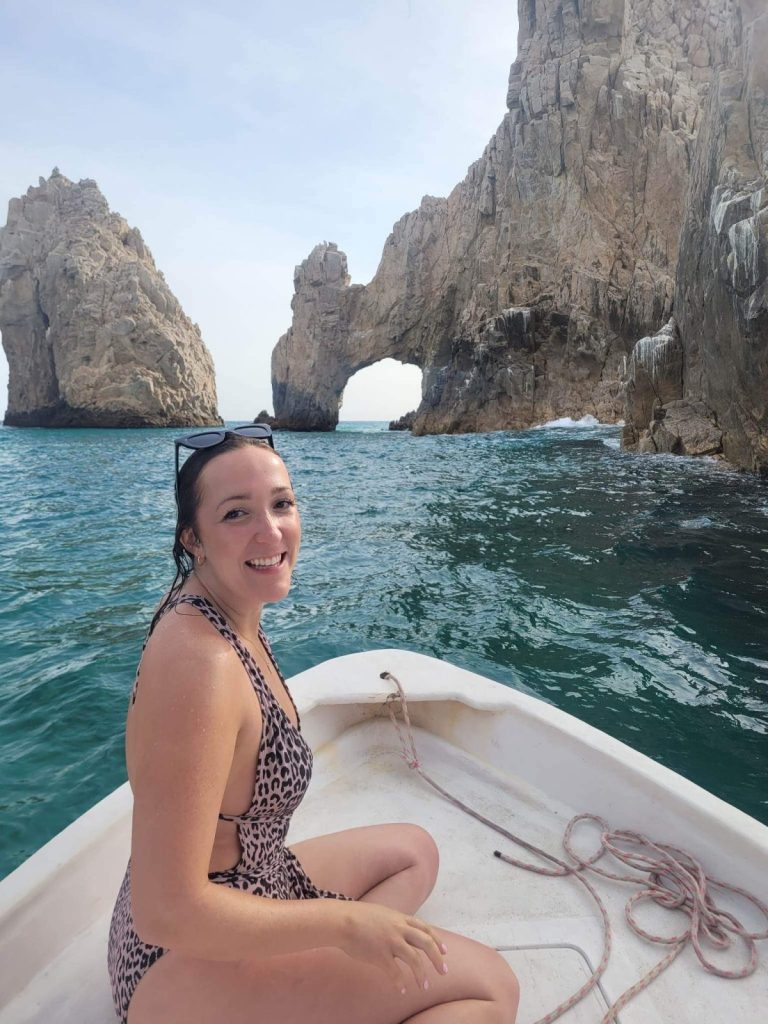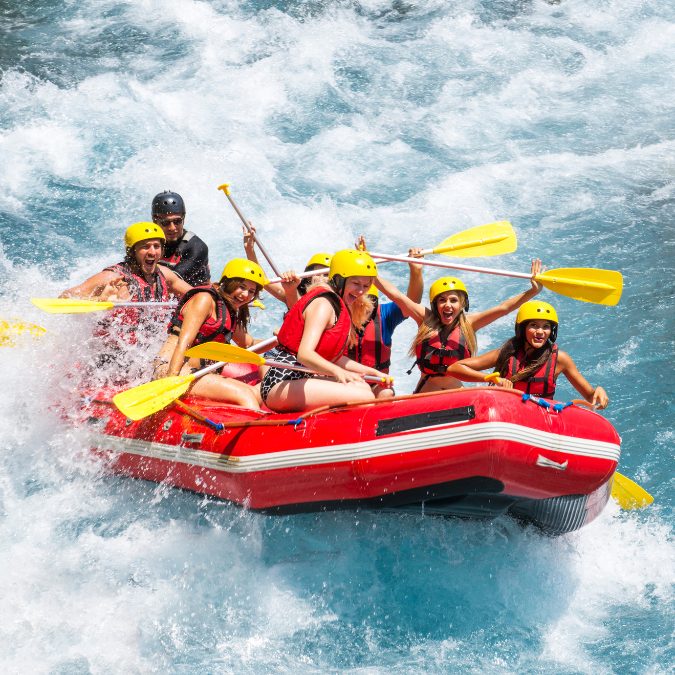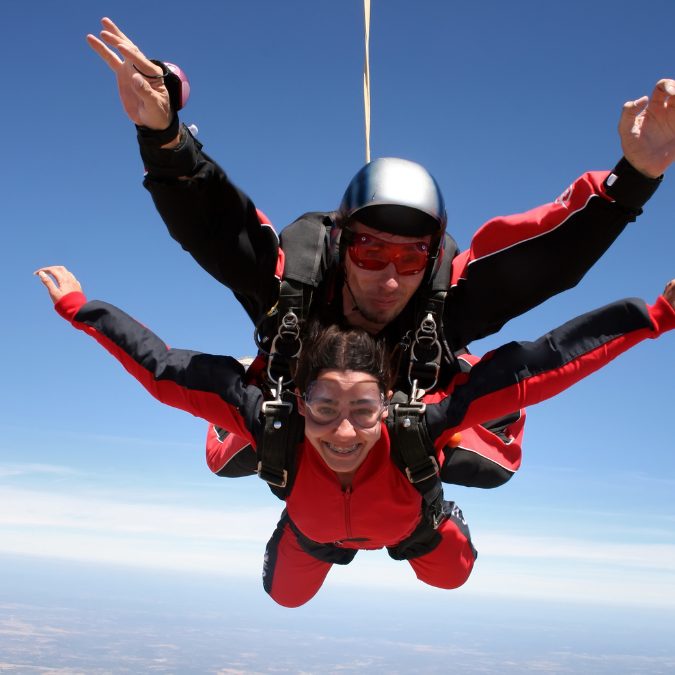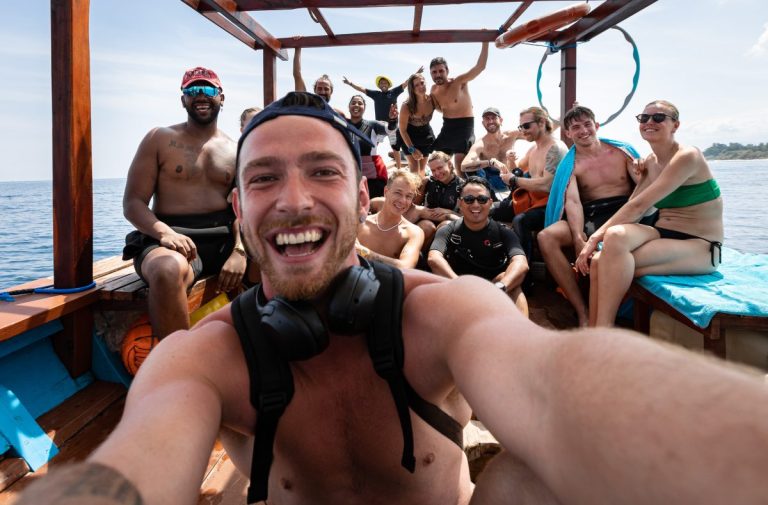Can I Snorkel If I Don’t Know How To Swim | Guide
Have you ever wondered if you can you snorkel even if you don’t know how to swim??
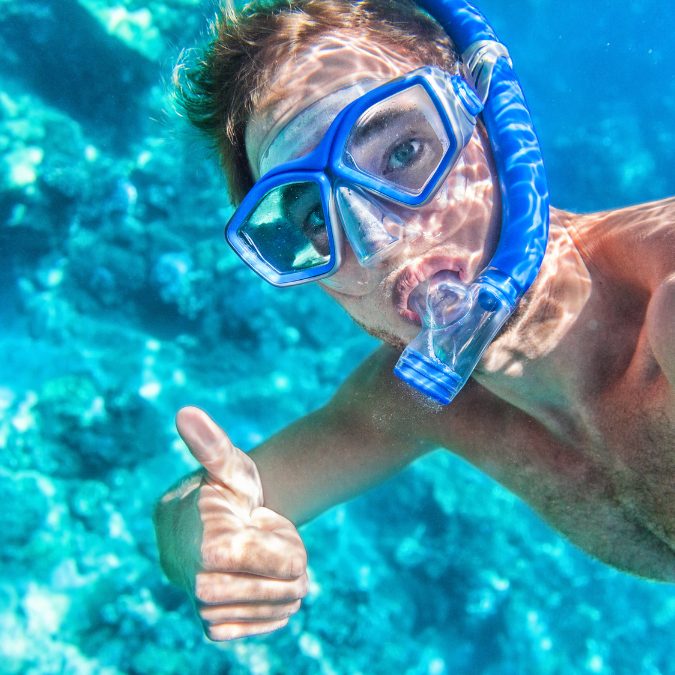
For many, the allure of the underwater world is a magnetic force, drawing them to explore the mysteries beneath the surface. But what if you’re not a strong swimmer? Can you still experience the enchantment of snorkeling?
The answer is a resounding yes! In this comprehensive guide, we’ll delve into the nuances of snorkeling for non-swimmers, providing insights, tips, and the essential know-how for an enjoyable aquatic adventure.
Getting Started: Basics of Snorkeling for Non-Swimmers
Understanding the Essentials:
If you’re not a strong swimmer, the prospect of snorkeling might seem daunting. However, with the right gear and a bit of guidance, you can still revel in the underwater beauty. Start in shallow waters where you can comfortably stand, gradually progressing to deeper areas as you gain confidence.
Choose Beginner-Friendly Equipment:
Invest in beginner-friendly snorkeling gear, including a life jacket, snorkel vest, or other flotation devices. These not only provide buoyancy but also instill a sense of security, making your first snorkeling experience more comfortable.
Opt for a Full-Face Snorkel Mask:
For non-swimmers, a full-face snorkel mask is an excellent choice. It covers your entire face, allowing you to breathe naturally through both your nose and mouth. This design minimizes the learning curve, making it an ideal option for those new to snorkeling.
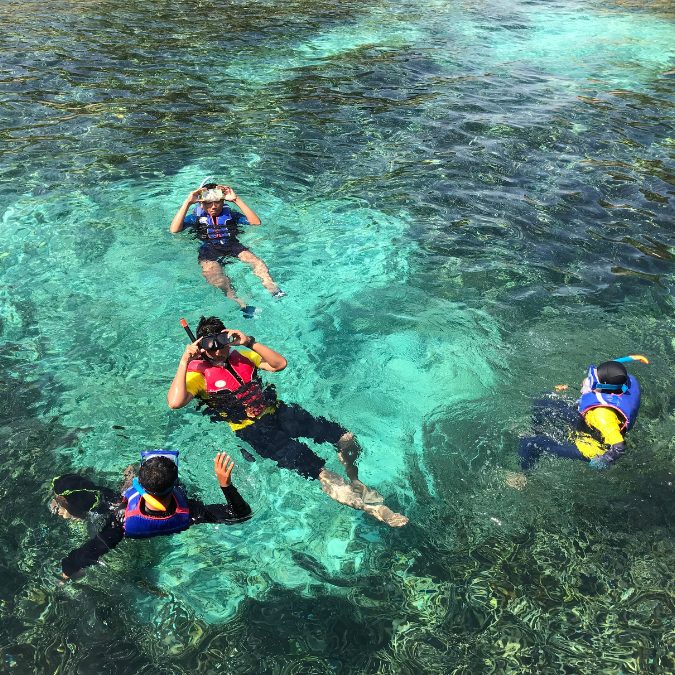
The Right Gear for Non-Swimmers:
Life Jacket or Snorkel Vest:
Wearing a life jacket or snorkel vest ensures you stay afloat effortlessly, even in deeper waters. These flotation devices are designed to provide the necessary buoyancy, allowing you to focus on enjoying the underwater world.
Dry Snorkels and Purge Valves:
Equip yourself with a dry snorkel that prevents water from entering the tube. Snorkels with purge valves make it easy to clear any water that might find its way in, ensuring a hassle-free experience.
Floatation Device and Float Belt:
In addition to a life jacket, consider using a floatation device or a float belt. These accessories offer extra buoyancy, providing an added layer of safety, especially if you’re venturing into open water.
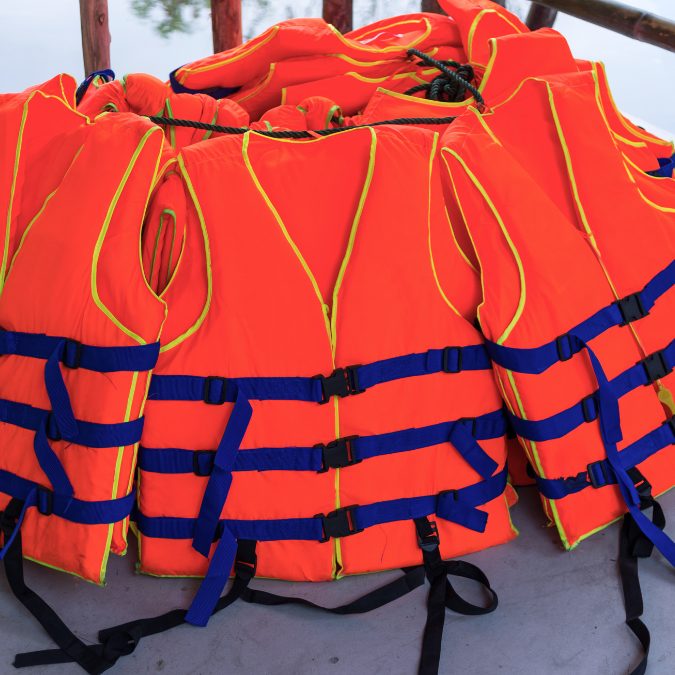
Tips for a Safe and Enjoyable Snorkeling Experience:
Choose Calm Waters:
Opt for snorkeling spots with calm waters, such as lagoons, bays, or gently sloping beaches. These areas offer a more relaxed environment for non-swimmers to explore.
Buddy System:
Always snorkel with a buddy, especially if you’re not a proficient swimmer. The buddy system ensures someone is there to assist if needed and enhances overall safety.
Weather Conditions and Safety Precautions:
Check weather conditions before embarking on a snorkeling trip. Avoid strong currents and dangerous conditions. Prioritize safety by adhering to guidelines, and always inform someone about your snorkeling plans.
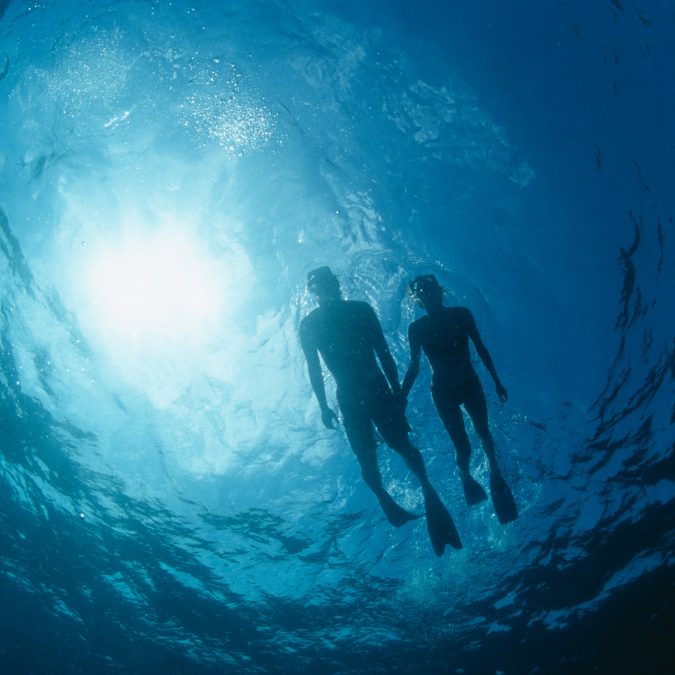
Exploring Beyond the Shallows:
Utilize a Snorkel Guide:
Consider joining a snorkeling tour led by a local guide. They can provide personal attention, share insights into the marine life, and ensure your safety throughout the experience.
Start in a Swimming Pool:
If you’re a first-time snorkeler, begin in a swimming pool. It provides a controlled environment to familiarize yourself with the gear and practice basic skills before venturing into open water.
Overcoming Challenges and Ensuring Safety:
Rash Guard and Sun Protection:
Wear a rash guard to protect your skin from the sun and potential irritants in the water. Sun protection is crucial, even while snorkeling, to ensure you have a great time without any discomfort.
Breathing Techniques:
Practice deep breaths and calm breathing techniques while snorkeling. Relaxation is key to enjoying the experience, and controlled breathing enhances your comfort level in the water.
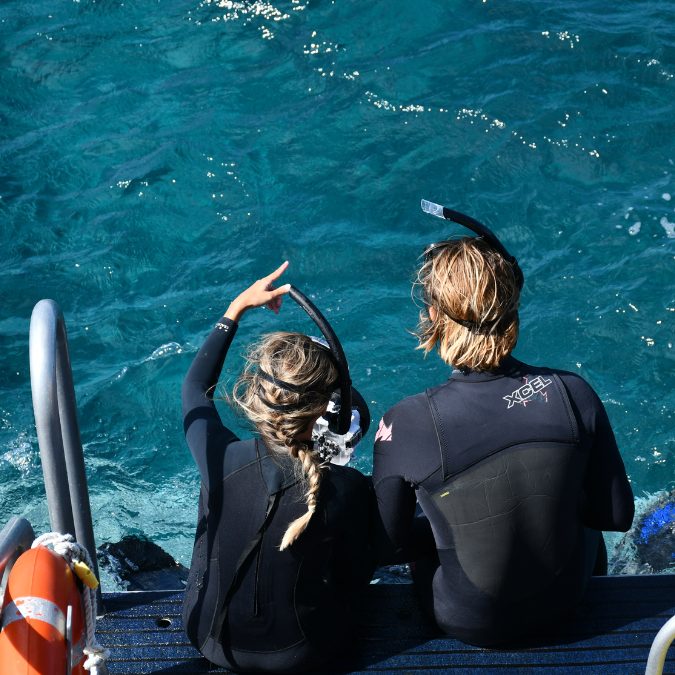
Best Places for Non-Swimmers to Snorkel:
Warm Water Destinations:
Choose destinations with warm water conditions, which are generally more inviting for novice snorkelers. Warm waters also enhance the overall comfort of the experience.
Shallow Snorkeling Spots:
Look for snorkeling spots with shallow depths, allowing you to stay closer to the water’s surface. Coral reefs and vibrant marine life can often be explored in shallower areas.
FAQ
Q1: Can I snorkel without knowing how to swim for the first time?
Absolutely! Snorkeling is accessible for beginners, even those without strong swimming skills. Start in shallow waters and gradually progress to deeper areas as you gain confidence.
Q2: Is it a good idea to snorkel in deeper water if I’m not a good swimmer?
Venturing into deeper water can be a good idea with the right safety measures. Consider using a life vest or inflatable vest for added buoyancy.
Q3: What’s the best way to ensure an enjoyable experience snorkeling for the first time?
Start by choosing a calm and shallow snorkeling spot. Use a personal flotation device like a life vest, and practice basic snorkeling techniques in a controlled environment.
Q4: Can I snorkel without being an experienced swimmer?
Yes, snorkeling is suitable for individuals of all swimming levels. Beginners can use life vests or inflatable vests to feel more secure in the water.
Q5: Do I need to be a good swimmer to take a closer look at sea life while snorkeling?
No, you don’t need to be a strong swimmer. Use swim snorkels and personal flotation devices to stay afloat and get a closer look at the fascinating underwater world.
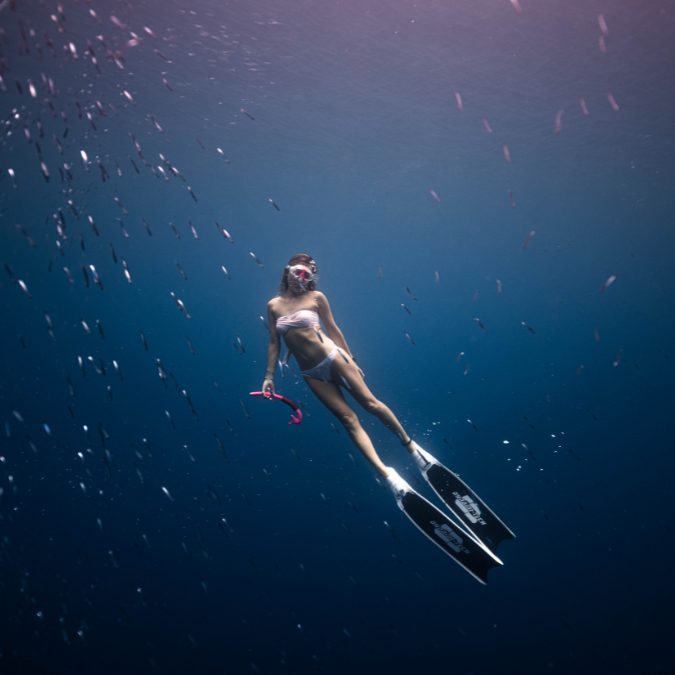
Q6: What is the most important thing for first-time snorkelers?
For beginners, the most important thing is to prioritize safety. Use proper snorkeling gear, including a snorkel mask with a purge valve, and start in calm waters.
Q7: Is snorkeling a great way to explore the surface of the water without scuba diving?
Absolutely! Snorkeling allows you to observe marine life near the water’s surface without the need for scuba diving equipment.
Q8: Can I snorkel without strong swimming skills?
Yes, you can. Utilize an inflatable vest or life vest to provide buoyancy, allowing you to snorkel comfortably even without strong swimming skills.
Q9: What is the first thing to consider before snorkeling for the first time?
Before snorkeling for the first time, ensure you have the right equipment, including a well-fitting snorkeling mask and a reliable personal flotation device.
Q10: Are there dangerous situations to be aware of while snorkeling without strong swimming skills?
While snorkeling, be cautious of strong currents and potential hazards. Always prioritize safety and be aware of your surroundings.
Q11: Can I get better control in the water while snorkeling without being a good swimmer?
Yes, using an inflatable vest or life vest provides better control, allowing you to focus on enjoying the snorkeling experience.
Q12: What are the right safety measures to take when snorkeling without strong swimming skills?
Ensure you use a properly fitted snorkeling mask, wear a personal flotation device, and stay in areas with calm waters. Always follow safety guidelines.
Q13: Are there great places for snorkeling without being an experienced swimmer?
Yes, there are many great snorkeling spots suitable for beginners. Look for calm, shallow waters and explore popular activities in those areas.
Q14: Is it a good option to use dry-top snorkels for snorkeling without strong swimming skills?
Dry-top snorkels are a great option for beginners. They prevent water from entering the snorkel tube, making the experience more enjoyable.
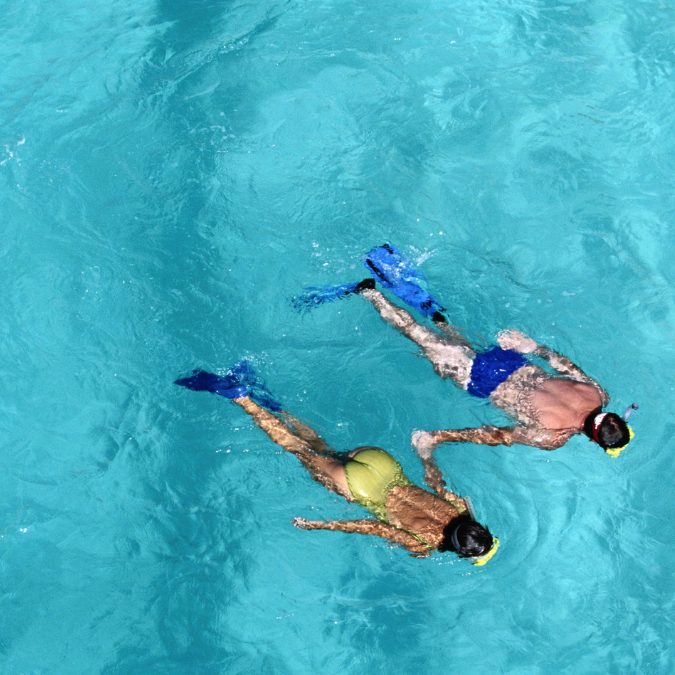
Q15: Can I have a good time snorkeling without being an experienced swimmer?
Absolutely! With the right equipment and safety measures, snorkeling can be a fantastic and enjoyable experience for individuals of all swimming levels.
Q16: What is the most practical advice for snorkeling without being a good swimmer?
Start in a swimming pool to practice using your snorkel equipment before heading to open water. This allows you to familiarize yourself with the gear in a controlled environment.
Q17: Can I snorkel without strong swimming skills for a long time?
Yes, using personal flotation devices or inflatable vests allows you to snorkel comfortably for an extended period, even if you’re not a strong swimmer.
Q18: How can I stay in a horizontal position while snorkeling without strong swimming skills?
Using a life vest or inflatable vest helps maintain a horizontal position, allowing you to glide effortlessly through the water.
Q19: Are there safety concerns when snorkeling in little water?
Always be aware of safety concerns, even in shallow water. Stay vigilant, especially if there are hazards like rocks or strong currents.
Q20: Can I snorkel in a water body with a lot of people without strong swimming skills?
Yes, you can still enjoy snorkeling in popular areas. Choose spots with controlled access, and use a personal flotation device for added safety.
Q21: Are traditional snorkel masks suitable for snorkeling without being an experienced swimmer?
Yes, traditional snorkel masks are suitable for beginners. Ensure a proper fit and use additional flotation devices for added safety.
Q22: Is snorkeling at the Great Barrier Reef a great option for non-swimmers?
The Great Barrier Reef offers beginner-friendly areas for snorkeling. Follow safety guidelines and enjoy the mesmerizing underwater world even if you’re not a strong swimmer.
In Conclusion: A World of Wonders Awaits:
Embarking on your first snorkeling adventure as a non-swimmer is a thrilling endeavor filled with the promise of discovering amazing things beneath the water’s surface. With the right gear, basic skills, and adherence to safety measures, you can confidently explore the underwater world.
Remember, it’s not about being an Olympic swimmer; it’s about embracing the incredible beauty that awaits beneath the waves. So, gear up, take that first plunge, and let the wonders of snorkeling unfold before you!

